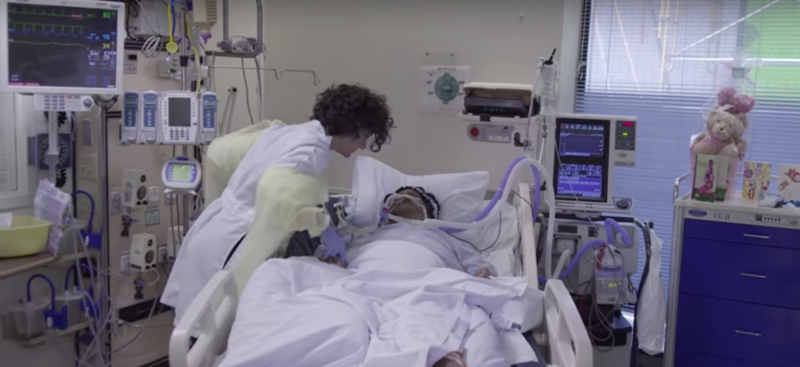"Here's the reality, we are all gonna die," she says to a group of medical staff in the film's trailer. "Everyone standing in this room is gonna die one day and it's good to have a little bit of a say in how."
Every day, patients are permanently hooked up to machines, she says in the film.
"My concern is we are going to cause more suffering without likely benefit," she tells a patient's loved one in the film. "The other approach is let her pass naturally."
It is often difficult for doctors to fight their instinct to treat medical symptoms and know when it's time to stop, she wrote about in the New York Times in April.
There is a growing movement within the medical field to recognize how important it is for doctors to help patients navigate care and face the end of their lives.
Boston surgeon Atul Gawande's recent book and movie called Being Mortal, revealed how well-meaning doctors are often untrained and unprepared to discuss death with their patients.
End-of-life issues have also been at the forefront of public discussion as states like California enact legislation to allow terminally ill patients to take medicines to end their lives.
The Netflix documentary shows how difficult the choices are for families who have to make decisions about a dying loved one.
Giving consent for doctors to stop medical treatment can feel wrong and provoke tremendous feelings of guilt for a patient's family.
"It would feel like murder to pull her life support," says one young woman when faced with this choice.
The 24-minute documentary, directed by Dan Krauss, won the Best Documentary Short award this year when it premiered at the 2016 Tribeca Film Festival.
